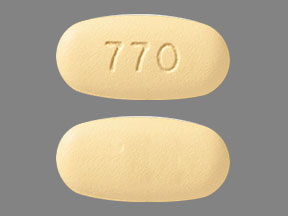Zepatier Disease Interactions
There are 4 disease interactions with Zepatier (elbasvir / grazoprevir).
Direct acting antivirals (applies to Zepatier) immunosuppression
Major Potential Hazard, Moderate plausibility. Applicable conditions: Immunodeficiency, Infectious Hepatitis
HBV reactivation has been reported during or after completion of HCV direct-acting antiviral therapy in HCV/HBV-coinfected patients who were not receiving HBV antiviral therapy; some cases resulted in fulminant hepatitis, hepatic failure, and death. Cases have been reported in hepatitis B surface antigen (HBsAg)-positive patients and patients with serologic evidence of resolved HBV infection (i.e., HBsAg negative and hepatitis B core antibody [anti-HBc] positive). HBV reactivation has also been reported in patients using certain immunosuppressant or chemotherapeutic agents; risk of HBV reactivation associated with HCV direct-acting antiviral therapy may be increased in these patients. All patients should be tested for evidence of current or prior HBV infection by measuring HBsAg and anti-HBc before starting HCV direct-acting antiviral therapy. Patients with serologic evidence of current or prior HBV infection should be monitored for clinical and laboratory signs of hepatitis flare or HBV reactivation during HCV therapy and posttherapy follow-up; appropriate patient management for HBV infection should be started as clinically indicated.
Elbasvir (applies to Zepatier) hepatic impairment
Major Potential Hazard, Moderate plausibility. Applicable conditions: Liver Disease
The use of elbasvir (which is available in combination with grazoprevir) is contraindicated in patients with moderate or severe hepatic impairment, or those with any history of hepatic decompensation.
Elbasvir (applies to Zepatier) liver transplant
Major Potential Hazard, Moderate plausibility. Applicable conditions: Organ Transplant
The safety and efficacy of elbasvir (available in combination with grazoprevir), have not been established in patients awaiting liver transplant or in liver transplant recipients.
Grazoprevir (applies to Zepatier) hepatic impairment
Major Potential Hazard, Moderate plausibility. Applicable conditions: Liver Disease
The use of is grazoprevir is contraindicated in patients with moderate or severe hepatic impairment (Child-Pugh B or C) due to the expected significantly increased in plasma concentration and the increased risk of alanine aminotransferase (ALT) elevations.
Switch to professional interaction data
Zepatier drug interactions
There are 246 drug interactions with Zepatier (elbasvir / grazoprevir).
Zepatier alcohol/food interactions
There is 1 alcohol/food interaction with Zepatier (elbasvir / grazoprevir).
More about Zepatier (elbasvir / grazoprevir)
- Zepatier consumer information
- Check interactions
- Compare alternatives
- Pricing & coupons
- Reviews (53)
- Drug images
- Side effects
- Dosage information
- During pregnancy
- FDA approval history
- Drug class: antiviral combinations
- En español
Related treatment guides
Drug Interaction Classification
| Highly clinically significant. Avoid combinations; the risk of the interaction outweighs the benefit. | |
| Moderately clinically significant. Usually avoid combinations; use it only under special circumstances. | |
| Minimally clinically significant. Minimize risk; assess risk and consider an alternative drug, take steps to circumvent the interaction risk and/or institute a monitoring plan. | |
| No interaction information available. |
See also:
Further information
Always consult your healthcare provider to ensure the information displayed on this page applies to your personal circumstances.


